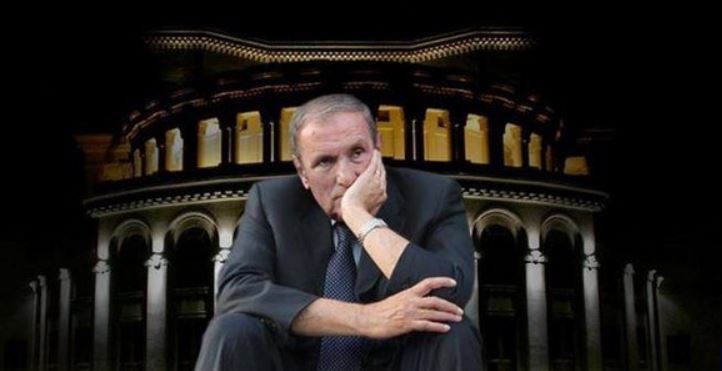When the first president of Armenia makes his observations on Artsakh, the reaction is usually twofold. Instead of responding to those observations in terms of content, his opponents make general accusations, which can be formulated with the following rhetorical question: “If we had to give Karabakh, then why did you start the Karabakh movement in 1988 and subject our people to unspeakable trials?” It seems to me that this, although it can affect many people emotionally, is a weak argument from the ground up. From February 1988 to May 1994, Ter-Petrossian and his team brought the issue to a more or less good, albeit not perfect, state. All that remained was to fix the situation with international guarantees, which, for obvious reasons, did not happen. The “why is it time” argument is quite logically vulnerable. I do not touch upon “childish” and “cold” type objections at all.
On the other hand, the statements of the first president are often perceived by his supporters as almost biblical truths, which are even a sin to discuss. It is clear that arguing against the “proven” is unreasonable, the refusal to compromise has led to disaster, and those opportunities were missed by both the second and third presidents and the current prime minister. The latter’s assertion that in case of a compromise the situation would be the same, but without casualties, apart from being in fact wrong, sounds rather cynical. In my opinion, human life is not a “small detail” that can be ignored when building a strategy.
However, there is a question to discuss in Ter-Petrossian’s words. Do these street demonstrations really have an impact on Armenia’s negotiating position, is that a negative impact? First of all, we have to admit that Russia is “wrapping our necks” around difficult, painful solutions; the activity of the West has no significant impact here. Especially now that the rivalry between the two centers has intensified, Moscow will not allow the EU to take part in this issue (see Maria Zakharova’s statement on Charles Michel’s initiative, where she uses the “shameless” macabre). The Russian government is obviously not the government that is interested in public opinion in any country (including its own country), if it intends, it will try to implement what it thinks.
The question arises whether Russia really intends to finally close the Artsakh issue, given that it is the main serious lever on Azerbaijan (there are many other levers to influence us). Let’s assume that the situation develops in the worst case scenario, though very possible. Pashinyan or someone (it really does not matter) signs the “peace treaty”, the Russian peacekeepers leave Artsakh, no Armenians stay there for months. Azerbaijan is achieving its goal and it no longer needs anything from Russia. Maybe based on some more global calculations, Moscow is ready to go for it, gaining advantages in other parts of the world instead. Maybe the described scenario is not favorable for Russia. Unlike Internet politicians, I do not know the final answer. I just suggest thinking.
Read also
Aram Abrahamyan






















































